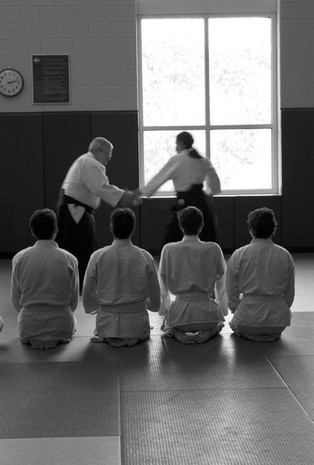There is concern that some medical research has been using 'placebos' that are not truly inert. An inert treatment would be a benign action or substance that should not be a cause of any specific medical symptoms. Instead of an using a truly inert chemical, fraudulent research design might chose a substance because it causes adverse effects similar to the experimental treatment. The results would then seem equivalent - and therefore roughly safe - the experimental treatment was no more dangerous on average than an allegedly 'inert' placebo. If the substance was not inert, however, instead was a chemical that causes adverse effects then it was not really a placebo test at all. The substance would also then be a ''treatment' or possibly a 'toxin' - either way, a substance that can cause a health effect.
True placebo effect is somewhat mental and emotional - stronger with a stronger trust in the practitioner or person sharing advice and seems to involve the person's dopamine levels. See the post: Placebo and Nocebo Effects and COMT gene alleles.
The use of a substance other than a tiny sugar pill or saline solution injection - both inert in that neither would likely cause any direct physical effect due to chemical/medical reasons.
In clinical trials for statin medications the adverse effect rates were very close to the placebo adverse effect rates - numerous times - over a wide range - far wider than the typical 'placebo effect' of ~ 40% - about forty percent of people given a sugar pill/saline water injection for a headache/tummyache/whatever who were told that it will help - will report back that it did help.
The statin studies, excerpt from an article by Dr. Malcolm Kendrick, The Great Placebo Scandal:
"However, here is a short selection of major statins studies.
AFCAPS/TEXCAPS: Total adverse effects lovastatin 13.6%: Placebo 13.8%
4S: Total adverse effects simvastatin 6%: Placebo 6%
CARDS: Total adverse effects atorvastatin 25%: Placebo 24%
HPS: Discontinuation rates simvastatin 4.5%: Placebo 5.1%
METEOR: Total adverse effects rosuvastatin 83.3%: Placebo 80.4%
LIPID: Total adverse effects 3.2% Pravastatin: Placebo 2.7%
JUPITER: Discontinuation rate of drug 25% Rosuvastatin 25% placebo. Serious Adverse events 15 % Rosuvastatin 15.5% placebo
WOSCOPS: Total adverse effects. Pravastatin 7.8%: Placebo 7.0%
Curiously, the adverse effect rate of the statin is always very similar to that of placebo. However, placebo adverse effect rates range from 2.7% to 80.4%, a thirty-fold difference."
The Great Placebo Scandal, by Dr. Malcolm Kendrick, (drmalcolmkendrick.org/2020/02/25)
That is a scandal in my opinion, it is statistically improbable that the adverse effects of the statin medication and the 'inert' 'placebo' would match so closely and match precisely over such a large range - 2.7% to 80.4%. There is only a total difference of 4.7 between the 9 pairs of numbers. Eighteen numbers pairs were almost identical, some were identical: the difference between the pairs of numbers: 0.2, 0.0, 1.0, 0.6, 1.1, 0.5, 0.0, 0.5. 0.8.. That is improbable. The potential difference could be as large as 900, 9 pairs times 100, if all the pairs of numbers were as far apart as zero percent and 100%. Quite a difference between 4.7 and 900, seems improbable to have occurred randomly which medical research ideally is randomized and double blinded for complete objectivity between the experimental and placebo participants - neither the researchers or participants are supposed to know if they receive the placebo or the treatment - both blind to which group they were randomly assigned.
lovastatin 13.6%: Placebo 13.8% - 13.6 - 13.8
simvastatin 6%: Placebo 6% - 6 - 6
atorvastatin 25%: Placebo 24% - 25 - 24
simvastatin 4.5%: Placebo 5.1% (discontinuation) - 4.5 - 5.1
rosuvastatin 83.3%: Placebo 80.4% - 83.3 - 80.4
3.2% Pravastatin: Placebo 2.7% - 3.2 - 2.7
25% Rosuvastatin 25% placebo. (discontinuation) - 25 - 25
15 % Rosuvastatin 15.5% placebo (adverse effects) - 15 - 15.5
Pravastatin 7.8%: Placebo 7.0% - 7.8 - 7.0
Those percentages (most of them) represent the adverse effects, potentially real side effects of the experimental treatment and random happenstance is expected to represent the symptom changes reported by the placebo group. Even if the participants were prewarned to expect a certain type of side effect, which might cause a negative, nocebo, effect, and increase the likelihood of those symptoms being reported by a placebo group, however based on the history of research on the placebo effect, we would then only expect about 40% of the 'placebo' group to have those specific adverse symptoms.
Our own self talk may help or harm us too.
Change of topic - we can't do much individually about medication research placebos besides consulting with your doctor about your own symptoms and side effects. Ideally a treatment will simply help restore function and you feel better. Within our own self talk however, we may be effecting our health and mood with our internal messages. Are they having a positive, placebo effect? or a negative, nocebo effect?
The martial arts Grand Master Carlos Gracie, shared his 12 Commandments of Jiu Jitsu with students, and they may be helpful for anyone.
To be so strong that nothing can disturb your peace of mind.
Speak to every one of happiness, health and prosperity.
Give all your friends the feeling that they are valuable.
Always look at events from a positive point of view, and turn positivity into a reality in life.
Think always in the best, work solely for the best and expect always the best.
Always be as enthusiastic about the success of others as you are about your own.
Forget about past mistakes and concentrate your energies on the victories ahead.
Always keep your fellow men joyful and have a pleasant attitude to all that address you.
Spend all the time you need in perfecting yourself, but leave no time to criticise the others.
Become too big to feel unrest, too noble to feel anger, too strong to feel fear and too happy to tumble in adversity.
Always have a positive opinion about yourself and tell it to the world, not through words of vanity but through benevolence.
Have the strong belief that the world is beside you if you keep true to what is best within you. - Grand Master Carlos Gracie, 12 Commandments of Jiu Jitsu (bjjheroes.com)
Better for our own self talk to be a placebo than a nocebo, and for those around us in our families, workplace, hobbies, and especially in our caregiving or teaching - those who depend on us for positive care.
Peace and love.
Previous posts on the placebo and nocebo effects:
Disclaimer: Opinions are my own and the information is provided for educational purposes within the guidelines of fair use. While I am a Registered Dietitian this information is not intended to provide individual health guidance. Please see a health professional for individual health care purposes.










Comments